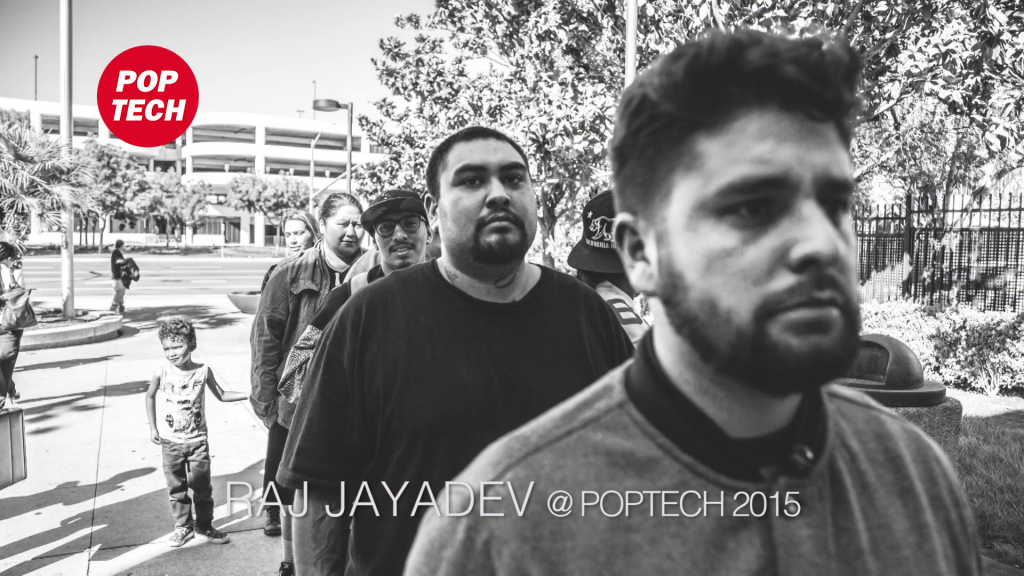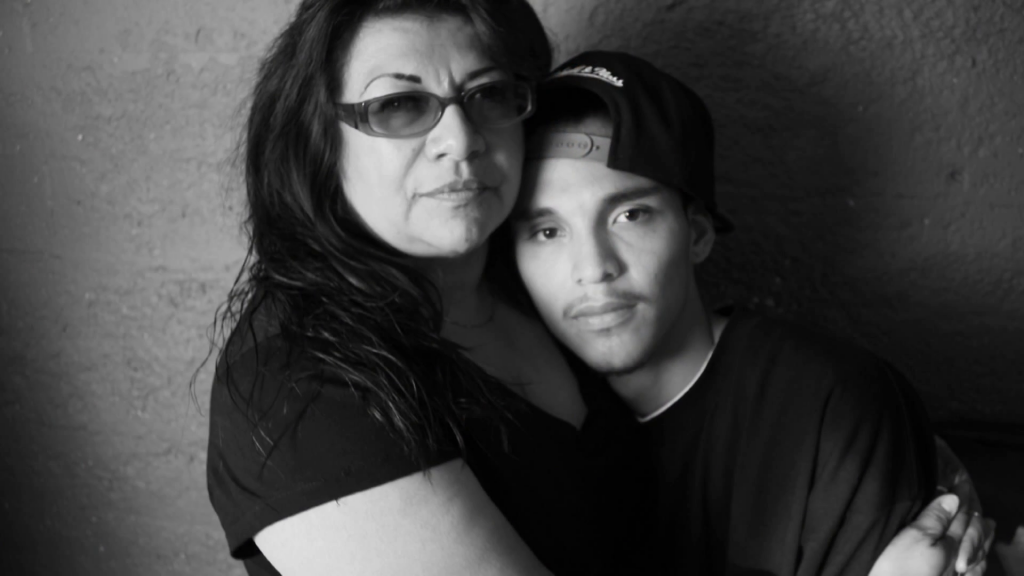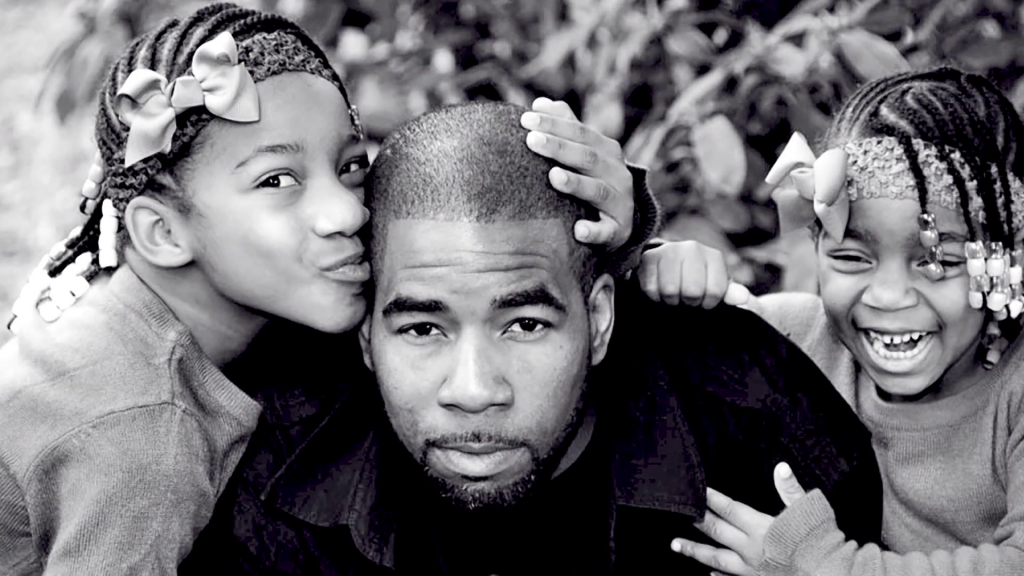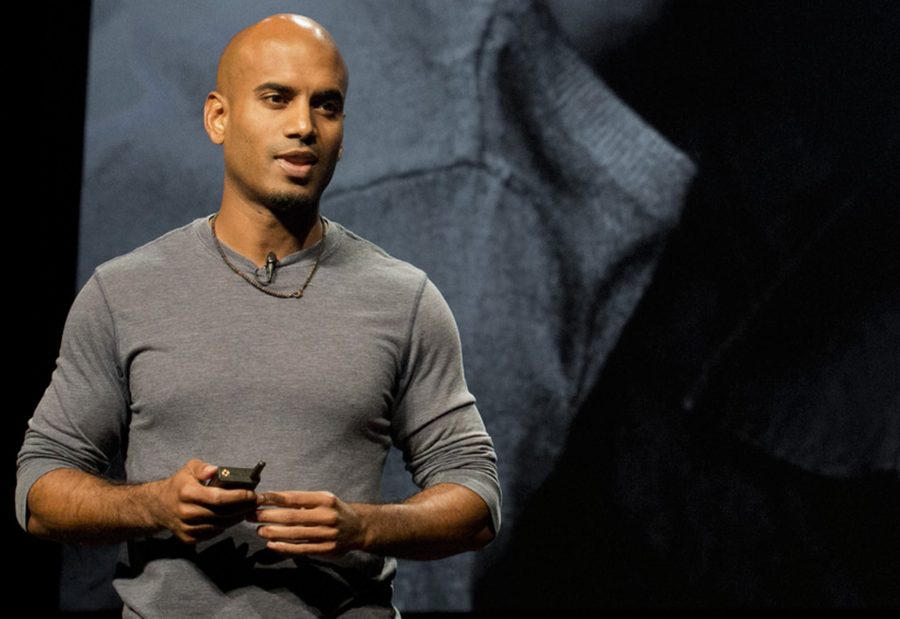These are people waiting in line back in my hometown in San Jose, getting ready to go into court.

They’re connected by one looming, anxiety-filled question, “Will I go to prison or jail? Will I be part of the over two million people incarcerated in this country?”
And the reality is that eight out of ten people that face the justice system can’t afford their own attorney. And so they have a public defender, who’s doing heroic work but is under-resourced and stretch bare with too many cases. And so as a result, people that are facing the justice system, unsure of how to navigate those courts and separated from their families and communities, over 90% will take a plea deal. Meaning they’ll never see their day in a trial court.

But we have a solution. We make the family an essential and effective part of the defense team, so they could change the outcome of cases and transform the landscape of power in the court system.
How it works is friends like Blanca who have loved ones that are facing the justice system convene in a weekly meeting with other families who have loved ones that are facing the courts. And they build a community out of what otherwise would’ve been an isolating, intimidating process. And they write the names of their loved ones on a board. And collectively, they go through every single name, identifying specific places where the family could have tangible impact on the outcome of the case.
They will identify tactics like creating biographical material so that their loved one is understood by the courts not as just a case file. And they’ll review police reports and point out inconsistencies that prove innocence. And they’ll work with the public defender, who now has a new resource at their disposal that is as committed as they are in seeking justice for their client. And the results have been remarkable. We’ve seen charges dismissed, sentences be significantly reduced, not guilty verdicts, even appeals of the initially wrongfully convicted.
And we have one ceremony in this model we call participatory defense, which is when a loved one comes home, and they’ve been a name on the board that we’ve seen or just understood through a mom’s story. That person is given an eraser. And they walk over to the board and their erase their name. And it means that the family has been made whole. And for those other families who are just starting the journey, going through the most frightening times of their lives, it means that there is hope and a finish line for them, too, if they engage and participate.

And the person that I wanted to introduce my PopTech family to as a way to describe the process is Carnell. Carnell pled guilty to a low-level drug charge, but was facing a five-year prison sentence. And his main concern was, as a single father what would happen with his two young girls if he got locked up. So we gave him a camera and we said, “Take pictures of what it’s like being a dad.” So he took pictures of making the girls breakfast, and taking them to school, and driving them to volleyball practice. And he made this photo essay that he gave to his public defender, who used [it] at the sentencing hearing. And that five years of prison was transformed into a six-month outpatient drug program, so that Carnell could be with his two young girls, and his daughters would have a father in their lives. And Carnell can get the treatment that he was seeking for himself and for the future of his family.
And Carnell’s not the only story. We have one metric that we use in participatory defense. We call it “time saved.” It’s a play on the term time served, which is what the courts call time of incarceration. So, what we do is we look at what was a family facing when they first came to us versus what they received after they worked the model. And so Carnell would represent five years in time saved. When we reviewed all our cases and we totaled the numbers, we had 1,862 years of time saved.
Those are years with parents in their children’s lives. Of young people going to college instead of prison. of generational cycles of suffering that had been eliminated. All from the power, will, and intellect of families. We’re training communities all across the country now. And what I would ask of you is when you go back to your hometown, and if you see a line peaking out the courtroom doors of your city, know that those people are not necessarily just the fodder of mass incarceration on a conveyor belt to jail or prison. They are potentially the founding mothers and fathers of a new movement that may change the way justice is experienced and exercised in America, forever.
Thank you.
Further Reference
This presentation at the PopTech site.
